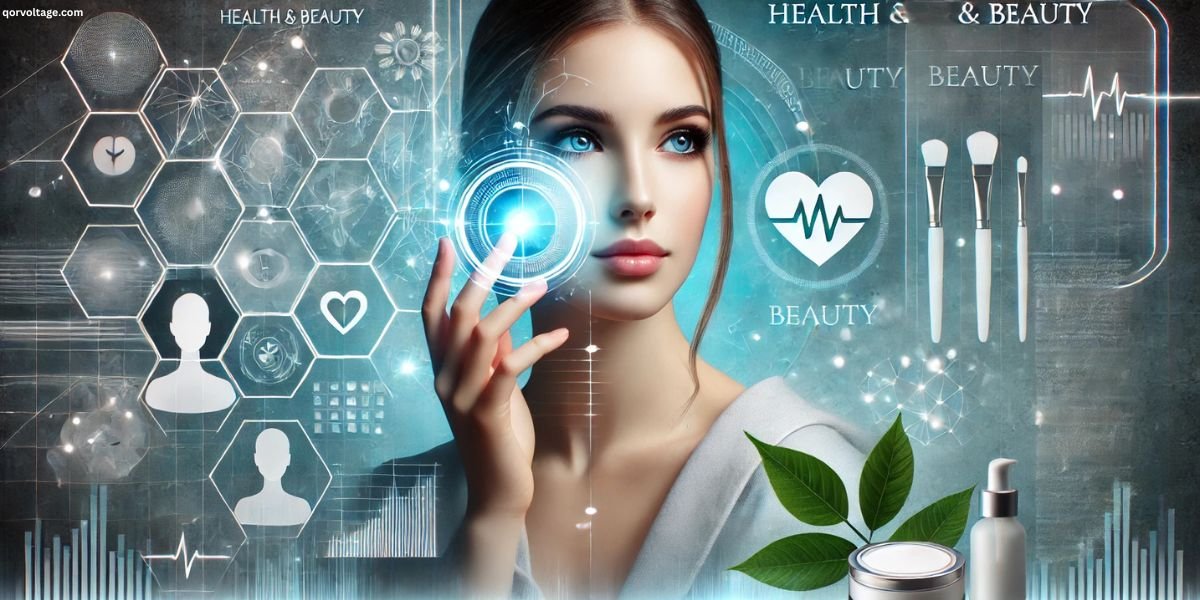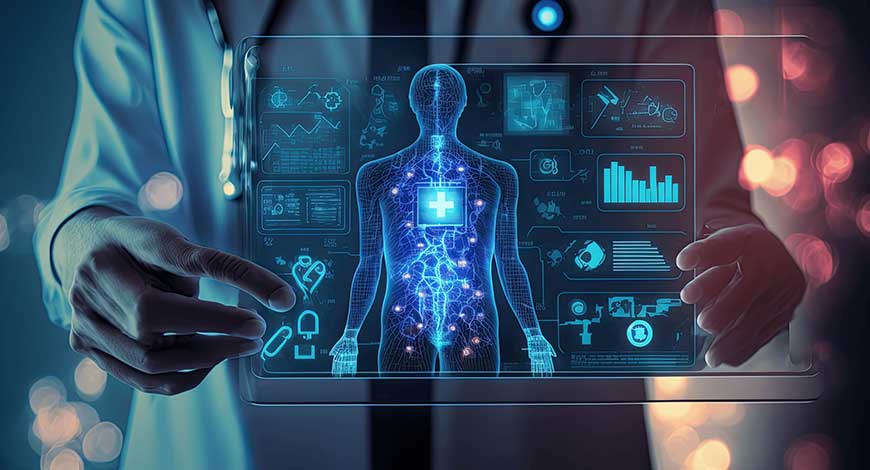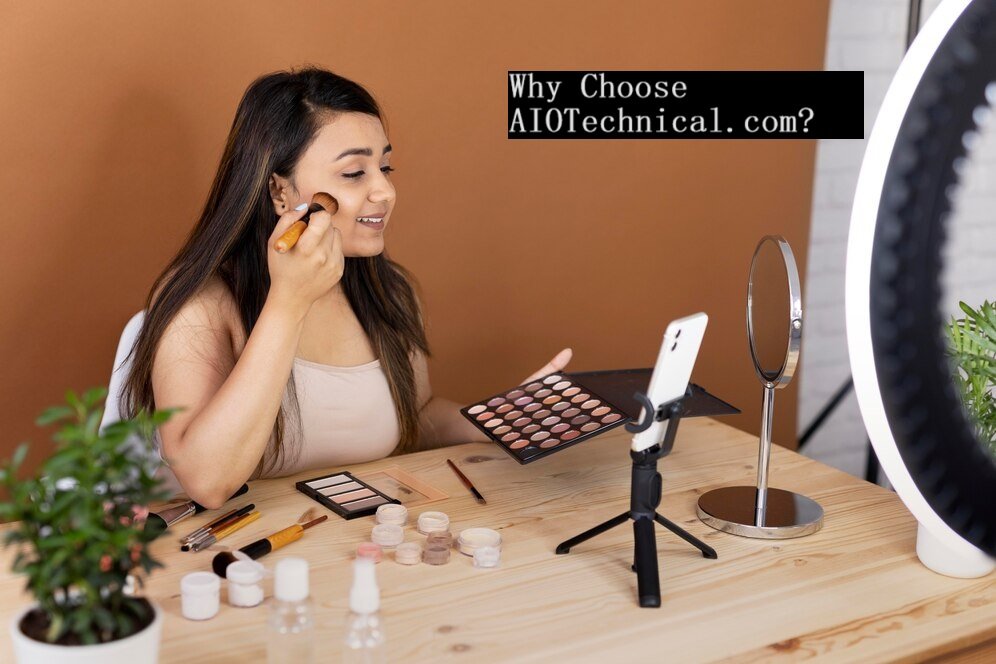Introduction to AIOTechnical.com
AIOTechnical.com stands at the forefront of innovation within the health technology sector, committed to transforming healthcare delivery through the integration of Artificial Intelligence (AI) and the Internet of Things (IoT). This platform embodies a mission to enhance the efficiency, accessibility, and personalization of health services, catering to the evolving needs of patients and healthcare providers alike. By harnessing cutting-edge technologies, AIOTechnical.com aims to create a more connected and responsive healthcare ecosystem.
At its core, the vision of AIOTechnical.com is to foster a future where health technology plays an integral role in everyday life. By utilizing AI-driven analytics and smart devices, AIOTechnical.com develops solutions that not only streamline medical processes but also empower patients to take charge of their health. This balance of technology and human experience is vital, as it leads to timely interventions and more informed decision-making in healthcare settings.
The integration of AI and IoT has significant implications for the health landscape. For example, remote patient monitoring systems enabled by IoT can provide real-time health data to doctors, leading to proactive care and better management of chronic conditions. Additionally, AI algorithms can analyze vast amounts of health data to identify patterns and predict potential health issues before they arise. This shift represents a movement toward more preventive care rather than reactive treatment, ultimately benefiting patients and healthcare systems.
As the world leans into the digital age, the importance of innovative health solutions becomes increasingly clear. AIOTechnical.com is not just an online resource; it is a vital partner in guiding stakeholders through this complex transition, ensuring that advances in technology translate into meaningful improvements in patient outcomes and overall public health. The combination of AI and IoT technologies has the potential to revolutionize the healthcare industry, and AIOTechnical.com will be pivotal in driving these changes forward.
Understanding the Impact of AI and IoT on Health\

Artificial Intelligence (AI) and the Internet of Things (IoT) represent critical advancements in the healthcare sector, fundamentally altering the landscape of patient care and health management. AI refers to systems or machines that simulate human intelligence to perform tasks, enhancing capabilities such as predictive analytics, diagnostic accuracy, and personalized treatment plans. Meanwhile, IoT encompasses a network of interconnected devices that communicate and exchange data, fostering a seamless integration of information across health platforms.
The relevance of these technologies to healthcare is profound. AI algorithms can analyze vast amounts of health data, identifying patterns and trends that would be impossible for human practitioners to discern alone. For instance, through machine learning, AI can significantly enhance diagnostic processes, enabling earlier detection of diseases such as cancer or diabetes. This ultimately results in timely intervention and improved patient outcomes.
Simultaneously, IoT devices, such as wearable health monitors and smart medical equipment, are transforming patient engagement and remote health monitoring. Patients can now be monitored in real-time, promoting preventive care by alerting physicians and caregivers to potential health issues before they escalate. This shift not only supports faster and more accurate diagnosis but also helps in developing individualized treatment options tailored to specific patient needs.
Moreover, the integration of AI and IoT technologies aids in the effective management of health data. With a multitude of devices generating new data continuously, the challenge lies in analyzing and utilizing this information efficiently. Advanced analytics powered by AI can streamline data processing, ensuring that health providers receive actionable insights rapidly, thereby allowing them to make informed decisions concerning patient care.
In conclusion, the interplay between AI and IoT technologies is indeed reshaping healthcare, leading to smarter systems that provide personalized care and improved patient outcomes. At AIOTechnical.com, the exploration of these innovations underscores their potential to revolutionize health services and enhance overall well-being.
Key Innovations in Health Technology

The realm of health technology is experiencing a profound transformation, driven by innovative contributions from platforms like AIOTechnical.com. These advancements are addressing crucial health challenges and reshaping the healthcare landscape. One significant area of innovation is telemedicine, which has revolutionized patient care by enabling individuals to consult healthcare professionals remotely. This not only increases accessibility to medical services but also reduces the burden on healthcare facilities, especially in rural areas. The ability to receive timely consultations through virtual platforms has become indispensable, particularly in the wake of global health crises.
Another notable advancement is the emergence of wearable health technologies. Devices such as smartwatches and fitness trackers have made it possible for individuals to monitor their health metrics in real time. These innovations empower users to engage actively in their health management, alerting them to potential issues before they escalate into serious conditions. AIOTechnical.com is at the forefront of developing sophisticated algorithms that analyze data collected from these devices, providing personalized health insights and recommendations to users.
Furthermore, AI-driven diagnostics are revolutionizing the way healthcare professionals assess and treat patients. With the capacity to analyze vast amounts of data quickly and accurately, artificial intelligence enhances diagnostic accuracy, leading to more effective treatment plans. This technology significantly reduces the time required for diagnosis, making it possible to identify illnesses at earlier stages when they are more manageable. Smart medical devices, which incorporate AI-driven functionalities, are also emerging as game-changers in patient care, offering automated monitoring and intervention solutions.
In summary, AIOTechnical.com is pioneering key innovations in health technology that not only enhance the efficiency of healthcare services but also improve patient outcomes. From telemedicine and wearable devices to AI diagnostics and smart medical technologies, these advancements are pivotal in addressing the evolving health challenges of our time.
Case Studies: Success Stories in AI Health Solutions

As the healthcare sector continues to evolve, artificial intelligence (AI) and the Internet of Things (IoT) have emerged as transformative forces, enhancing patient care and operational efficiency. AIOTechnical.com health initiatives reflect numerous successful implementations that underscore the efficacy of these technologies. One notable example is the deployment of an AI-driven predictive analytics platform in a major hospital network. This system analyzes vast amounts of patient data in real time to identify individuals at high risk for complications, significantly improving preventive care and reducing hospital readmission rates. The early identification of high-risk patients has led to a remarkable decrease in emergency interventions, ultimately enhancing patient outcomes and promoting overall health system resilience.
Another compelling case highlights the use of IoT-enabled wearable devices in chronic disease management. A healthcare provider utilized smart wearables to continuously monitor vital signs and health-related metrics of diabetic patients. The real-time data collection facilitated timely interventions, personalized treatment plans, and enhanced patient engagement. This integration of technology not only improved adherence to medication schedules but also resulted in fewer hospital visits and improved blood sugar control among participants. The transformative effects of this approach have been documented in peer-reviewed studies, demonstrating a substantial enhancement in quality of life for these patients.
Moreover, the collaboration between AIOTechnical.com and a leading telehealth service provider has led to advancements in remote patient monitoring. Through AI algorithms, the platform analyzes patient interactions and feedback, allowing healthcare professionals to adapt their care strategies effectively. This initiative not only streamlines healthcare delivery but also empowers patients to take active roles in managing their health. The results from this partnership indicate significant improvements in patient satisfaction, as well as reductions in operational costs due to increased efficiency. These case studies collectively exemplify the real-world effectiveness of innovative solutions in driving progress in the healthcare industry.
Challenges and Ethical Considerations in Health Tech

The integration of AI and IoT technologies in healthcare presents a myriad of challenges and ethical considerations that must be addressed as innovations advance. One predominant concern is data privacy. As health data becomes increasingly digitized, safeguarding patient information against breaches is vital. Health organizations are entrusted with sensitive data, and any unauthorized access can lead to significant repercussions, not only on an individual level but also on public trust in health systems. To mitigate these risks, robust frameworks and protocols must be established to ensure that data is securely stored and processed.
Additionally, the digital divide poses a critical challenge. While AI and IoT at aiotechnical.com health can enhance patient care, unequal access to these technologies could exacerbate existing health disparities. Low-income communities may lack the necessary resources or infrastructure to benefit from cutting-edge innovations, potentially widening the gap in health equity. Policymakers must consider initiatives that promote access to these technologies for all individuals to ensure equitable health outcomes across different populations.
As we explore the promising advancements in healthcare technology, the necessity for regulatory oversight also comes to the forefront. The rapid evolution of AI and IoT applications in health can outpace existing regulations, creating a landscape where products and services may not undergo rigorous evaluations. Establishing clear guidelines and ethical standards for the development and deployment of health tech is essential to safeguard patients’ interests while fostering innovation. By addressing these challenges and ethical dilemmas, stakeholders can navigate the complex landscape of health technology, paving the way for a more equitable and secure future in healthcare.
Future Trends in AI-Driven Health Solutions
As we look towards the future, the integration of artificial intelligence (AI) and the Internet of Things (IoT) will undeniably revolutionize healthcare. AI-driven health solutions are on the brink of significant advancements that promise to reshape the landscape of medical practices and patient care. Among these trends, personalized medicine is set to take the forefront. By utilizing data generated from wearables and health apps, practitioners can tailor treatments to individual patients. This personalized approach not only improves health outcomes but also enhances patient engagement and satisfaction.
Another notable trend is the evolution of data analytics in healthcare. As vast amounts of health data continue to be generated, AI technologies will play a crucial role in making sense of this information. Predictive analytics will enable providers to identify potential health risks before they escalate, allowing for timely interventions. Moreover, AI algorithms can analyze historical data to discern patterns and trends, leading to proactive management of chronic diseases and more effective resource allocation within healthcare systems.
The emergence of AI companions in healthcare is also an intriguing development. Virtual assistants and chatbots are being increasingly utilized to facilitate patient communication, appointment scheduling, and medication reminders. These intelligent tools can provide immediate support, streamline administrative tasks, and free up precious time for healthcare professionals to focus on high-level patient care. Additionally, they hold the potential to minimize the burden of healthcare costs, ultimately contributing to a more efficient system.
In conclusion, the future of health, driven by AIOTechnical.com health innovations, will center on personalized medicine, advanced data analytics, and supportive AI companions. Each of these trends showcases the profound potential of technology to redefine healthcare delivery, ultimately leading to enhanced patient experiences and better health outcomes.
The Role of Healthcare Professionals in Adapting to Technology

As technology continues to evolve, healthcare professionals find themselves at the forefront of this transformation. The integration of innovative tools and solutions, particularly those showcased at aiotechnical.com health, necessitates that medical practitioners embrace ongoing training and education in new health technologies. This adaptability is essential not only to remain relevant but also to enhance the quality of patient care significantly.
The landscape of healthcare is being reshaped by advancements in artificial intelligence, telemedicine, and electronic health records. Healthcare professionals must proactively engage with these technologies to leverage their full potential. Continuous education programs focusing on digital skills, data management, and patient interaction techniques can empower healthcare workers to navigate this new terrain more effectively. Such training ensures that they are not merely passive users but active contributors to the integration of technology in health services.
Moreover, developing collaborative relationships between technology firms and medical personnel is crucial. These partnerships can lead to the creation of tailored solutions that address specific healthcare challenges. For instance, software developers can work alongside healthcare providers to better understand workflows, resulting in the design of platforms that streamline processes and improve patient outcomes. Involving healthcare professionals in the innovation process fosters a sense of ownership and increases the likelihood that new systems will be adopted consistently.
In essence, the role of healthcare professionals in adapting to the rising influence of technology is paramount. By investing in education and fostering collaboration with tech industry experts, they can effectively navigate the complexities of modern healthcare environments. As the landscape continues to evolve, these efforts are vital for ensuring that technology serves as a valuable tool in enhancing patient care, promoting efficient practices, and ultimately, improving health outcomes.
Patient Empowerment through AI and IoT

The integration of AI and IoT innovations in healthcare is revolutionizing the way patients engage with their health management. One of the most valuable aspects of this technological evolution is the increased access to telehealth services. This service allows patients to connect with healthcare professionals remotely, eliminating barriers such as geographic distance and time constraints. By facilitating virtual consultations, AIOTechnical.com health solutions encourage patients to seek medical advice more frequently, leading to timely interventions and better health outcomes.
Furthermore, the capability to access personalized health data is transforming how individuals perceive and manage their well-being. With wearable health devices and mobile applications powered by AI, patients can monitor vital signs, track lifestyle habits, and receive customized feedback effectively. This data empowers patients to make informed decisions based on their unique health profiles—promoting proactive rather than reactive healthcare. AI algorithms analyze this information, offering tailored recommendations that align with the individual’s health goals, thus fostering autonomy in health management.
Moreover, mobile health applications act as a bridge between patients and healthcare providers, enabling seamless communication. Through these platforms, patients can ask questions, share symptoms, and receive instant support, creating a more interactive healthcare experience. The empowerment derived from these innovations also extends to educational resources available online, where patients can research conditions, treatment options, and preventive measures. Such knowledge equips them to engage in discussions with healthcare professionals, ensuring their voices are heard in treatment planning.
As a result, the convergence of AI and IoT signifies a paradigm shift in patient engagement and empowerment, making healthcare more accessible and tailored to individual needs. This evolution not only enhances patient experience but also contributes to improved health outcomes, demonstrating the critical role of innovative technology in today’s healthcare landscape.
Conclusion: The Path Forward for Health Innovations
As we have explored throughout this discussion, the advancements in health technology driven by AI and IoT represent a significant leap forward in how we perceive and manage health. The integration of these technologies at aiotechnical.com health exemplifies the potential to enhance patient care, streamline healthcare operations, and improve outcomes. The dialogue surrounding these innovations sheds light on the remarkable capabilities that can be harnessed when technology meets healthcare.
Collaboration emerges as a crucial element in the successful implementation of health innovations. The unified efforts of tech developers, healthcare professionals, and patients will be fundamental to navigating the complexities associated with the integration of AI and IoT within the health sector. Developers must work closely with healthcare providers to understand their needs and the challenges they face in order to create practical and applicable solutions that enhance the quality of care. Additionally, involving patients in this process will ensure that innovations prioritize user experience and accessibility.
The future of health innovations is bright, but it requires a concerted effort from all stakeholders involved. Ensuring that these technologies are effectively integrated into existing systems demand not just technological advancements, but also a reimagining of current healthcare models. By fostering a culture of collaboration and open communication among all parties, we can pave the way for a more efficient, effective, and patient-centered healthcare system.
In conclusion, the journey towards an advanced health ecosystem powered by AI and IoT is one of potential and promise. By recognizing and embracing the collaborative spirit necessary for success, we can look forward to a future where health care is more responsive, personalized, and effective than ever before.






